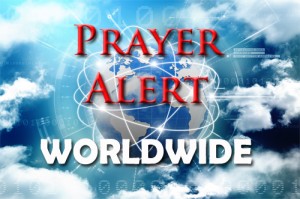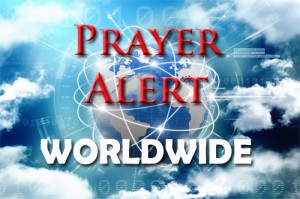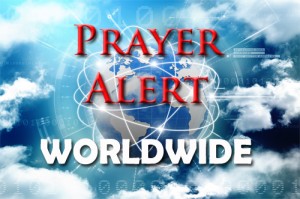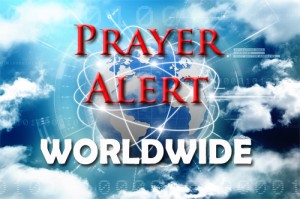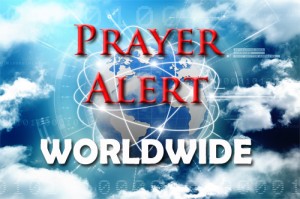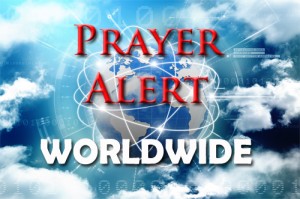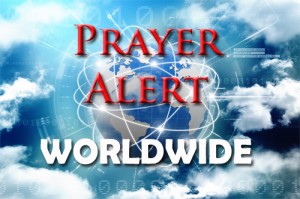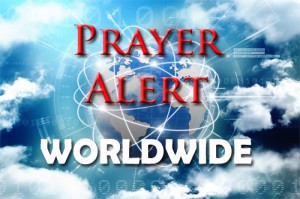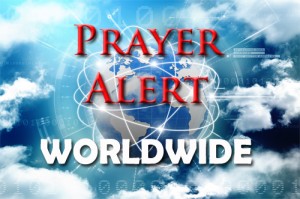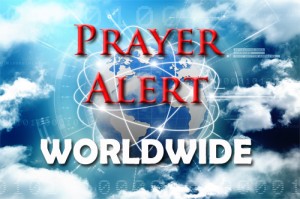Displaying items by tag: Asia
Israel: Aid for Syrian refugees
UK documentary director David Cohen filmed Israel's humanitarian work treating victims of Syria's civil war. ‘Love Your Enemies’ was premiered at a special Westminster screening. It featured interviews with medics and patients of pioneering surgery on horrific wounds at hospitals in Western Galilee. The film was enthusiastically received by an audience including former Cabinet Minister Stephen Crabb, Labour’s Ian Austin, Andrew Percy MP, and Israeli deputy ambassador Sharon Bar-li. But in a question and answer session following the hour long film Mr Cohen revealed that discussions with the BBC and Channel 4 over purchasing the film had so far proved fruitless. Israel and Syria are two enemy states, however a young Syrian patient said, ‘we are taught that Israel is the enemy – but all I have seen here is humanity.’ Unfortunately a documentary showing ground-breaking medical relief treatment of 4000+ Syrian war victims was considered ‘too Zionist’ for mainstream British television.
Lebanon: Middle East Shakeup
Lebanon has a delicate shared power tradition of a Maronite Christian President and Sunni Muslim Prime Minister. On 5th November Prime Minister Saad Hariri suddenly disappeared, fearing assassination and turned up in Saudi Arabia, claiming he is free and will soon return to Lebanon. His sudden resignation coincides with an aggressive purge of rivals by Saudi Crown Prince Mohammed bin Salman in his anti-corruption drive. Iran backs Hezbollah, who play a dominant role in Lebanese politics. There is heightened tension between Iran and Saudi Arabia. Hariri ‘said’ he hoped his resignation was a positive shock between the nations. Many doubt the authenticity of the statement; fearing Lebanon's crisis will set the stage for a Middle East calamity. Christians usually suffer in these regional conflicts. Windows International are asking people to pray for: -truth and transparency to emerge as Lebanon and other countries seek answers to Hariri's strange disappearance; -Prime Minister Saad Hariri and his family’s safety and freedom of movement.
Indonesia: Communicating the gospel
Over 700 languages are spoken in Indonesia and people are scattered across 6,000 islands varying in composition from rural fishing villages to highly metropolitan mega cities. Persecution is a reality for many believers in the most populous Muslim nation in the world. Although only 15% of the population follow Christ, the Indonesian church is experiencing profound unity as a result of the persecution, and mission organizations are growing in number. Indonesian believers also face a unique challenge as many of their neighbours are in geographical transition due to large-scale resettlement projects, migration, and forced relocation after natural disasters. However, the emergence of Indonesian (a form of Malay) as the national language has allowed the Gospel to be communicated across ethnic and geographic borders as never before.
Iran, Iraq: earthquake aid
Israeli prime minister Benjamin Netanyahu offered humanitarian assistance, via the Red Cross, to the victims of a devastating 7.3 magnitude earthquake that killed hundreds in Iran and Iraq on 13 November. He was immediately refused. Netanyahu said Israel has no quarrel with the people of Iran; the quarrel is with the regime that threatens Israel’s destruction. Meanwhile tens of thousands of Iranians are living in the open, after homes built with earth were totally destroyed. The terrain is mountainous, and the temperature is dropping. The head of the Revolutionary Guards, Major General Jafari, said the immediate need was for tents, water and food. Pray for this crucial aid to reach the inaccessible areas as helicopters and army vehicles are mobilised. Pray for clear communication between agencies organising search and rescue operations and relief camps. Pray for those in hospitals, and those in mourning. See also
Bedouin: week of prayer
The Bedouin are traditionally Arabic-speaking nomads who live in tents throughout the deserts of the Middle East. In recent decades many have settled into small villages within their tribal territories while continuing to shepherd herds of goats, sheep, and sometimes camels. Culturally they have stronger ties to their families, tribal customs, and traditions than with conservative Islam - though all would declare themselves Muslim. They are very cordial. Even the poorest family will offer a cup of tea or coffee to their guest. Often behind that generosity there is a family suffering from degrees of brokenness and hopelessness. Desert life is difficult. They accept their fate ‘ordained by God and unchangeable’. Because they live in remote areas, they are hard to reach and many have never met a Christian; however, what may seem impossible for us is possible for God. Pray for the Lord to send His rain to soften the dry ground of people’s hearts, sending dreams and visions for people to talk about.
Afghanistan: specific targeted prayer
A missionary writes: ‘Afghanistan continues to be plagued by suicide attacks and violence. Recently more than 100 army and police personnel were killed in three days. Government and media offices as well as significant leaders were also targeted. The terrorist groups mainly responsible for this were the Taliban, IS, and the Haqqani network based in Pakistan. Together they are responsible for thousands of deaths each year. Yet when some of us who are still in the country recently prayed very specifically about this situation, within days the security forces uncovered a truck loaded with explosives and a house full of weapons, thus saving many lives. We need to maintain this level of specific targeted prayer. We also need to pray against the external sources which provide all these weapons. Finally, we need to pray that the Lord will continue to protect and provide for our colleagues and national personnel. (Psalm 18:36)’
Yemen: civilians suffer from blockade
A Saudi-led coalition backing Yemen's government will not allow rebel-controlled air and sea ports to reopen until a better system is created to prevent weapons being smuggled from Iran. The coalition tightened its two-year blockade after a ballistic missile was fired at Riyadh airport. Iran denied arming Houthi rebels, and said the missile launch was ‘an independent action’ in response to coalition ‘aggression’. 2,000+ have died since April from cholera, and 3,500 cases are being treated daily. The blockade will undo efforts to curtail its spread. 27,000 children a month are treated for severe and acute malnutrition. With no aid deliveries, nutrition supplies will run out within two months, affecting the treatment of 400,000 children over the coming year. The children will bear the scars of this conflict long into the future. Civilians are the only people paying the price for political wrangling.
Russia: radioactivity and chemicals
A mysterious radioactive cloud that passed over 28 European countries recently was first detected over Italy. France’s radioprotection institute has now detailed its findings, saying the origins of the cloud came from ‘somewhere in South Russia’. The area in question has nuclear facilities, including one that converted nuclear fuel into weapons during the Cold War. Even after the location was identified, it is unclear how the radioactive cloud appeared, as there was no apparent accident at any of the nuclear facilities and it was not an ‘authorised release’. Meanwhile, on 16 November, Russia and the USA failed to resolve a dispute over extending the mandate of a UN-backed investigative team which blamed Syrian forces for a chemical weapons attack in April that killed over 80 people. See
Iraq: a ‘second army’
For almost two years US-backed Iraqi government forces, with Kurdish Peshmerga forces and other allies, fought to remove IS fighters. 63 factions make up Iraq's Popular Mobilisation Forces (PMF) - groups united by ethnic and tribal leaders, whose fighters are either loyal to religious scholars, Iraqi political leaders, or Iran's Revolutionary Guard Corps. The diversity of PMF's forty divisions of 60,000+ fighters sheds light on many of Iraq's sectarian tensions and its ambiguous political future. Although formed via a religious decree to fight IS, many fighters are empowered by Iran and other non-state commands. Others are represented in Iraq’s parliament. A Middle East Forum analyst said that various larger PMF factions have been fighting to expand their political influence to gain ground for next year’s parliamentary elections while smaller, weaker PMF factions also have political ambitions and cannot be ruled out.
Iran: proposed changes in voting
Conservative MPs in Iran are proposing that Iranians should only be allowed to vote for members of their own religious group, making it impossible for members of religious minorities to be elected to any position of authority (90-95% of the population is Shia Muslim). Recently a Zoroastrian was suspended from the city council of Yazid, a historic city with many ancient Zoroastrian sites. The ruling clerics are becoming increasingly unpopular for taking harsher measures to block members of religious minorities from higher office. The proposal to force voters to vote for candidates from their own religious background would violate everyone’s democratic right to elect and be elected. Journalists, lawyers and some MPs have pointed to the presence of three Christians, a Jew and a Zoroastrian in Iran’s national parliament. The constitution currently allows each of the three minority groups a representative in parliament.
